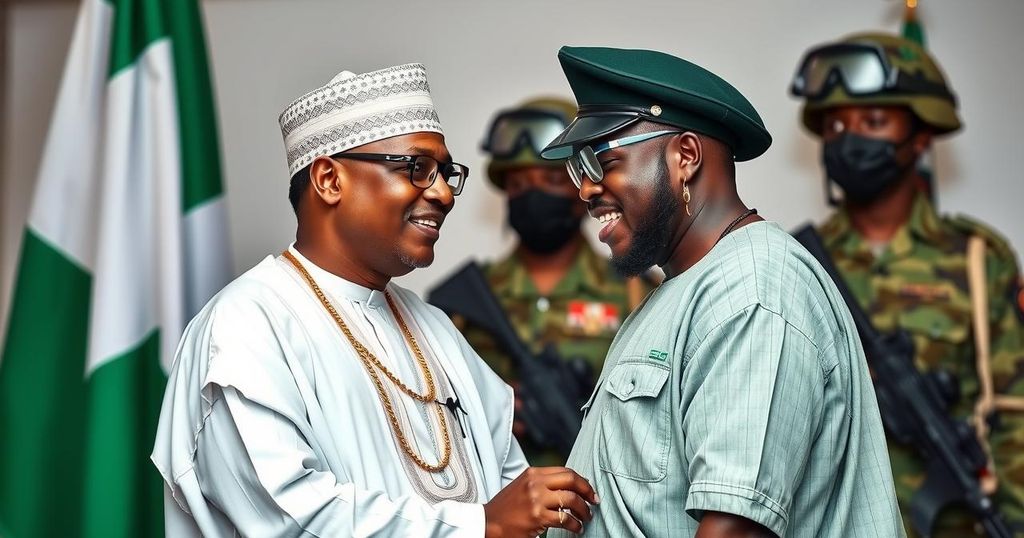Professor Eghosa Osaghae, NIIA DG, emphasizes the benefits of President Bola Tinubu’s foreign trips for economic investment and security collaboration. He underscores the interconnectedness of regional security challenges and the need for Nigeria to engage with its neighbors, especially in light of the recent withdrawal of Sahelian countries from ECOWAS. Osaghae also discusses the implications of Nigeria potentially joining BRICS as a strategy for economic options.
Professor Eghosa Osaghae, Director-General of the Nigerian Institute of International Affairs, recently discussed the importance of diplomatic engagements, particularly the foreign trips undertaken by President Bola Tinubu and Vice President Kashim Shettima, in the context of Nigeria’s current economic and security challenges. He outlined that the resources invested in these trips are outweighed by the potential returns in foreign direct investment (FDI) and overall economic welfare.
The professor emphasized that in today’s interconnected world, countries, including Nigeria, must engage in economic diplomacy to attract essential resources and technology, particularly to combat insecurity. He further emphasized that security threats are not confined by national borders and require international collaboration and support.
Referring to Nigeria’s historical, ethnic, and strategic ties with neighboring countries like Niger, he argued that their interconnectedness necessitates cooperation in addressing security issues that affect the region. Despite the recent political upheaval in parts of the Sahel, including Mali and Burkina Faso, he believes that Nigeria’s diplomatic relationships with these nations must continue.
Additionally, Osaghae discussed Nigeria’s position within the Economic Community of West African States (ECOWAS) and the ongoing regional dynamics amid the withdrawal of certain member states. He suggested that cooperation is essential in tackling transnational threats, asserting that Nigeria and its neighbors cannot afford to operate in isolation. He also addressed Nigeria’s potential membership in the BRICS coalition, highlighting that such a move would not antagonize its relations with Western nations, as BRICS aims to provide broader options on the global spectrum for developing nations.
The context of this discussion centers on Nigeria’s pressing need for economic diplomacy amidst challenges such as insecurity and socio-economic hardships. As President Bola Tinubu embarks on foreign trips, the Nigerian Institute of International Affairs asserts the significance of these diplomatic efforts to attract foreign investments crucial for the nation’s development. Furthermore, Professor Eghosa Osaghae elaborates on the interconnectedness of West African countries in combating security threats, alongside the potential implications of Nigeria’s role within both ECOWAS and the BRICS coalition.
In conclusion, Professor Eghosa Osaghae’s insights highlight that Nigeria’s diplomatic engagements are vital for attracting foreign investments which could bolster economic growth and development. Addressing the cross-border nature of insecurity necessitates collective regional efforts, emphasizing that Nigeria’s stability is intricately linked to its neighbors. Moreover, Nigeria’s potential inclusion in BRICS may offer new avenues for economic collaboration, ultimately enhancing the nation’s position on the global stage.
Original Source: punchng.com






